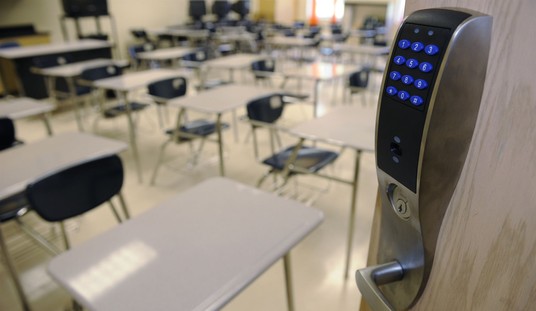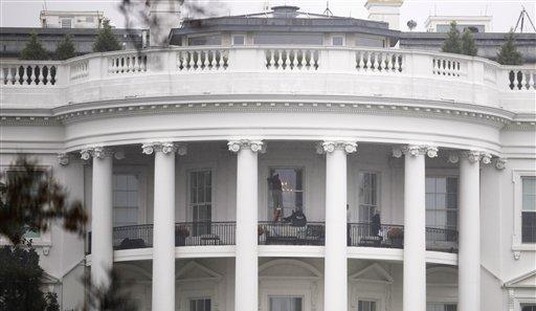Who would have thought that the Constitutional crisis and breakdown in America would come from people in robes? Most believe judges should stay in their lane of upholding and resolving the law, not legislating or interfering with the executive branch of government.
While the judiciary has superseded its authority under the Constitution at various times in America’s past, the appearance of Donald Trump on the national political stage brought about judicial activism and lawfare on steroids, starting with the Russia hoax and two impeachment attempts in his first term as president. To put it into context, in the last fifteen years, judges issued 12 injunctions against Obama during the eight years of his two terms, and Biden was issued injunctions 28 times during his four years. In Trump’s first four-year term combined with the first three-plus months of his second term, judges nationwide have issued injunctions against him some 84 times.
A week and a half ago, on April 19, the Supreme Court ruled that President Trump does not have the Constitutional Article II power over immigration enforcement to conduct the planned deportations of dangerous Venezuelan gang members under the Alien Enemies Act. So, it is not just unelected and Soros-funded radical federal judges but also the Supreme Court that is usurping the constitutional powers granted to the duly elected president of the United States.
What is most troubling now is that this judicial overreach comes at a time of maximum danger and threat to America—from enemies foreign and domestic, after years of illegal alien invasion that included thousands of terrorists, gang members, deranged criminals released from prisons, and likely fifth column young male military operatives from hostile countries that include China and Venezuela.
Recommended
To this stark national security risk, we also need to recognize that the breakdown of law and order in many American cities has reached the highest levels ever, in part because of the presence of an unprecedented number of criminals and gangsters that came into the U.S. with the Biden open border policy.
The idea that the judiciary is superior to the executive branch of government starkly contradicts the views of the Founding Fathers. While the federal courts, headed by the Supreme Court, do have an independent power to interpret and apply the Constitution, they are simply not supreme over the other two branches or even over the states.
Alexander Hamilton, argues in Number 78 of the Federalist Papers, that while the judiciary is tasked with interpreting laws and ensuring they align with the Constitution through judicial review, the Judiciary should be the "least dangerous" branch for it lacks the power of the sword of the military under the purview of the executive Commander-in-Chief. It also lacks the power of the purse residing in the legislature. Hamilton wrote that the judiciary “may truly be said to have neither force nor will, but merely judgment, and must ultimately depend upon the aid of the executive arm even for the efficacy of its judgments.”
Hamilton also reminds us that judges ought to regulate their decisions by fundamental laws, as in the Constitution, rather than by secondary laws. Further, Hamilton argues that the people's interest is paramount, such that all three branches of government—the legislative, the executive, and the judicial—should exercise their role and power to protect the people's interests.
Donald Trump made deportation of illegal immigrants a key plank in his campaign platform in 2023-2024, and he had a decisive November 5 election victory, carrying the popular vote, the electoral college vote, and the number of states by wide margins. Support for his deportation policy has actually increased since the election, with an early 2025 Reuters/Ipsos poll showing 66% of Americans favor deportation of illegal aliens; broken down by party affiliation, 93% of Republicans, 67% of independents, and 43% of Democrats favor deportation of all illegal aliens.
If Hamilton could be resurrected and speak to our time, he would say unequivocally that Trump’s duty is to the American people, which means deporting all illegal aliens. But powerful elements and factions in the judiciary are clearly intent on sabotaging Trump’s lawful and immensely popular deportation agenda. So, what should Trump do?
Standing on sound legal theoretical foundation of Hamilton, President Trump can also draw on the example of President Andrew Jackson, the country’s first populist and seventh president. Jackson stood up to the Judiciary, notably the Supreme Court, by challenging its authority to interpret the Constitution and refusing to follow its rulings in cases where he disagreed with the Court’s decision.
Jackson famously overruled the Supreme Court’s authority in refusing to honor the renewal of the Bank of the United States—a federal reserve-type bank—in 1832. In another 1832 Supreme Court case, Worcester v. Georgia, somewhat related to immigrants' rights, Jackson disagreed and proceeded to act against the Court’s decision. After Jackson famously stated, “John Marshall has made his decision, now let him enforce it,” Jackson proceeded to order federal troops to evict Cherokee Indians on the basis that they had no sovereignty or rights to stay on the territory in Georgia.
In conclusion, there is certainly precedent for President Trump to exercise the executive branch's independence and override the judiciary's authority. Most importantly, there is no more important duty and role for the chief executive and commander-in-chief than to protect national security and safeguard American citizens.
Scott S. Powell is a senior fellow at the Discovery Institute and a member of the Committee on the Present Danger-China. His timeless book, Rediscovering America, has been the #1 Amazon New Release in the history genre for eight weeks. https://www.amazon.com/dp/1637581599. Reach him at scottp@discovery.org
























Join the conversation as a VIP Member